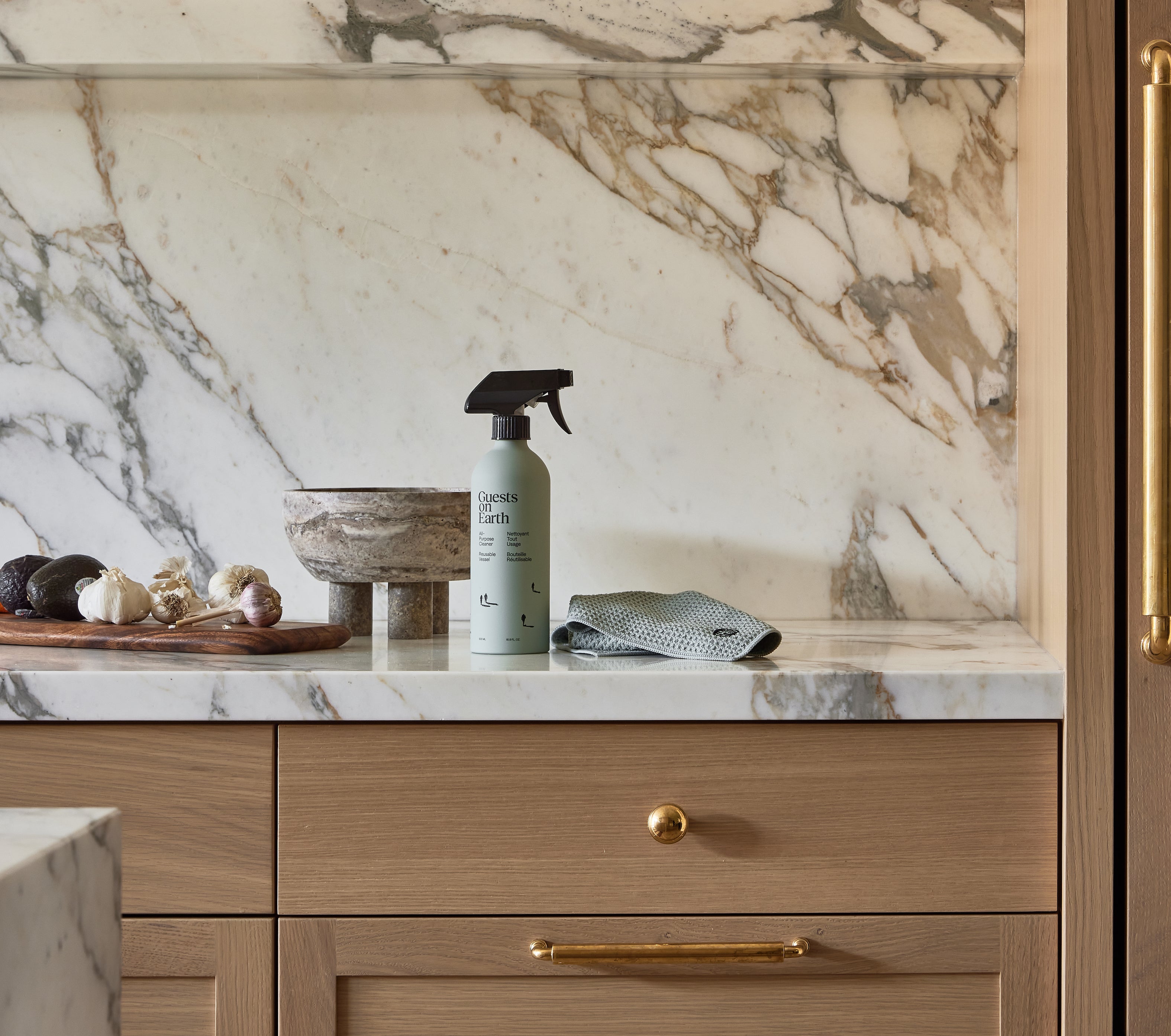
This month is Plastic Free July, a global movement that encourages people to reconsider the products they use every day and reduce single-use plastic waste everyday at home, work and restaurants.
This is particularly meaningful to Guests on Earth because it’s exactly this behavior that compelled us to find better, more environmentally friendly solutions to everyday homecare. Working from home during the pandemic made it impossible to ignore the amount of recycling and everyday waste - in particular, plastic - piling up.
Researching plastics and recycling turned up the shocking fact that recycling is largely a myth (lie), created and advertised by the chemical and plastics industries over the past five decades.
Each year, nearly 400 million tons of plastic is produced globally and one million plastic bottles are purchased every minute. Half of all plastic produced is designed for single-use purposes with no reuse in mind.

The industry has spent millions of dollars spreading false claims and hope around advertising in order to continue selling plastic. "If the public thinks that recycling is working, then they are not going to be as concerned about the environment," Larry Thomas, former president of the Society of the Plastics Industry, known today as the Plastics Industry Association and one of the industry's most powerful trade groups in Washington, D.C.
In reality, less than 10% of plastic has ever been recycled because while many plastics can technically be turned into new things, the process of picking it up, sorting it out and melting it down is expensive and incredibly cumbersome. A new report has slashed that number down to 5-6%, as countries like China refused to take in discarded plastic.
In other words, 94% of the plastic products we use each day - our household cleaners, soaps, laundry jugs included - wind up in landfills, in our oceans, polluting our coastline and breakdown into microplastics that end up in ecosystems, marine life and our bodies.
This upsetting statistic coincides with an increase in per capita plastic waste generation. Between 1980 and 2018, per capita plastic waste generation in the U.S. ballooned by 263 percent, going from 60 pounds to nearly 220 pounds per person per year. At the same time, the use of truly recyclable materials such as glass and paper has been declining.
“The plastics industry must stop lying to the public about plastics recycling,” Judith Enck, a former regional administrator for the EPA and the president of Beyond Plastics, said in a statement. “It does not work, it never will work, and no amount of false advertising will change that.”

Plastic degrades each time it is reused, meaning it can't be reused more than once or twice. New plastic, though, is cheap. It’s made from oil and gas and that’s how most of the plastic products we use are made - even the ‘classic, chic’ looking ones.
At Guests on Earth, we put a great deal of consideration into the materials we use. Our vessels are made from aluminum and are designed to be reused over and over again. Aluminum which is one of the most infinitely recyclable materials since it does not degrade as it gets recycled. Our system employs highly concentrated, small-format refills so that we don’t need to ship unnecessary water (traditional home care / cleaning products are 90% water). And our Microfiber Waffle Cloths come from 80% recycled materials and can be reused hundreds of times.
This month, we will continue to identify places in our home and work routines that use single-use plastics, and make conscious decisions to shift to more renewable resources. We hope you’re inspired to do the same! What are some eco-friendly swaps that you recommend this month?
Sources:


Leave a comment